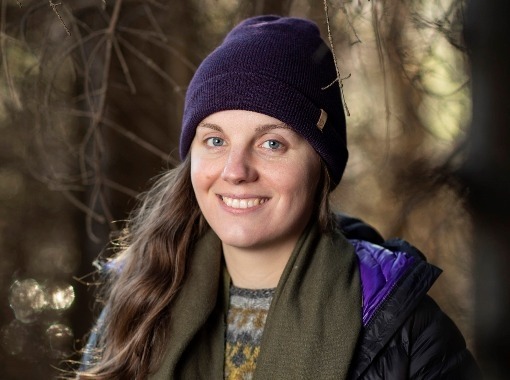Doctoral defence in Biology - Ingeborg Klarenberg

Aðalbygging
The Aula
Ph.D. student: Ingeborg Klarenberg
Dissertation title: Bacterial communities of lichens and mosses and nitrogen fixation in a warming climate
Opponents: Dr. James Bradley, Lecturer at Queen Mary University of London, UK
Dr. Pauline Vannier, Research scientist at Matís
Advisor: Dr. Oddur Vilhelmsson, Professor and Dean of the School of Business and Science at the University of Akureyri
Faculty supervisor: Dr. Ólafur S. Andrésson, Professor at the Faculty of Life and Environmental Sciences, University of Iceland
Doctoral committee:
Dr. Starri Heiðmarsson, Lichenologist at the Icelandic Institute of Natural History
Dr. Margrét Auður Sigurbjörnsdóttir, Associate professor at the Faculty of Natural Resource Sciences at the University of Akureyri
Dr. Ingibjörg Svala Jónsdóttir, Professor at the Faculty of Life and Environmental Sciences, University of Iceland
Chair of Ceremony: Dr. Anna Dóra Sæþórsdóttir, Professor and the Head of the Faculty of Life and Environmental Sciences at the University of Iceland
Abstract:
Climate warming in sub-Arctic regions leads to shifts in plant communities and retreating glaciers. Mosses and lichens contribute to important ecosystem processes in these environments, including nitrogen fixation via their microbiome. The first objective of this dissertation was to understand the extent to which long-term warming affects bacterial communities associated with the lichen Cetraria islandica. In the same context, the bacterial community and nitrogen fixation rates associated with the moss Racomitrium lanuginosum were investigated. These species are among the most common lichen and moss species in Iceland, respectively. Paper I shows that long-term warming affects the structure and composition of the bacterial community associated with C. islandica and that this change is partly mediated via changes in the plant community. The same is true for the bacterial communities associated with R. lanuginosum, although nitrogen fixation rates are apparently not affected by warming, potentially due to warming-induced shifts in nitrogen-fixing taxa (Paper II). The second objective was to evaluate the extent to which bacterial communities of two common Racomitrium species and the underlying soil as well as the moss-associated nitrogen fixation change during primary succession and whether these changes are related to changes in moss functional traits. The bacterial community composition associated with Racomitrium mosses was correlated with the successional stage in the Fláajökull forefield, and also with moss moisture content. The bacterial communities of the underlying soil also shifted with succession and were in addition related to the moss C:N ratio. Nitrogen fixation rates did not change with time since deglaciation, but were correlated with the bacterial community structure.
About the doctoral candidate:
Ingeborg Klarenberg was born in Munich, Germany in 1988 and moved to the Netherlands at the age of 9. She studied at Utrecht University in the Netherlands where she completed a BSc in Earth Sciences in 2012 and a MSc in Environmental Sciences in 2015. She started her PhD in Biology at the University of Iceland in 2016 in collaboration with the University of Akureyri and as part of the MicroArctic network, which was funded by the H2020 Marie Skłodowska-Curie Actions.
Ingeborg Klarenberg



